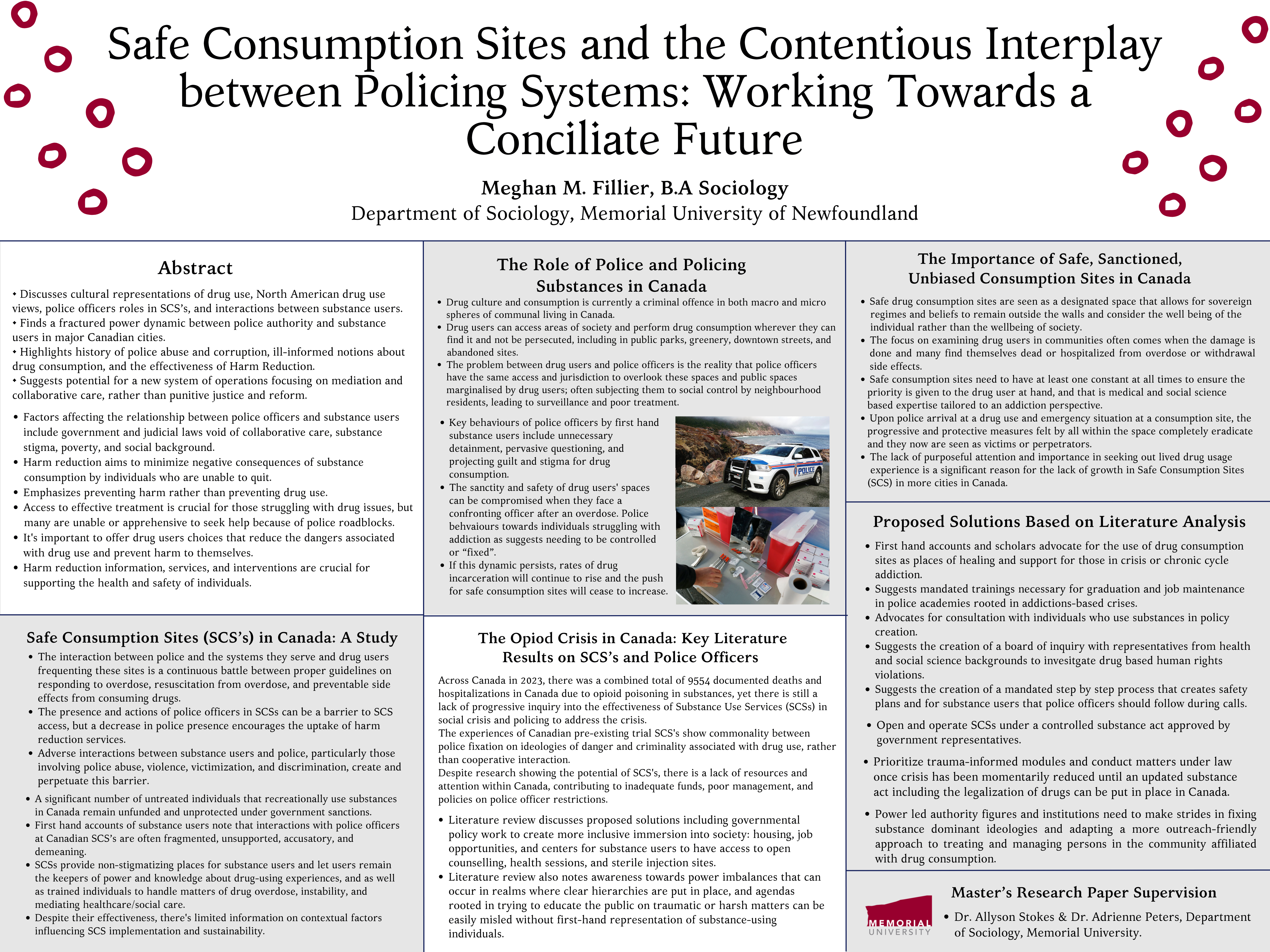Meghan Fillier

Poster Subject: Criminology
Poster Title: Safe Consumption Sites and the Contentious Interplay between Policing Systems: Working Towards a Conciliate Future
Bio: Meghan Fillier is a Sociology and Psychology Graduate from Memorial, and current MA student in the Sociology Department. Her main areas of work and research focus on Harm Reduction practices surrounding social crisis, abuse and exploitation, and centers of refuge and care. During her time at the St. John’s Women’s Center, her work centered around encouraging and providing safe drug use supplies and information to visitors. In her current role as a Managed Alcohol Worker, she enjoys being trained in Naloxone and Narcan overdose care; along with administering monitored alcohol doses to participants of the Managed Alcohol Program. Meghan is a passionate advocate for humanistic harm reduction based care in our communities and promoting safe consumption potential in society.
Abstract: This poster is intended as a descriptive analysis, critique, and dialogue towards rooted historical, cultural and societal significance of the principles and practices of a measure of Harm Reduction known as Safe Consumption Sites (SCS’s) and contentious police interaction/involvement. The discussions compiled herein are based on a review open-source information including of secondary academic literature review pertaining to cultural representations of drug in North American societies, the role of police and authority with SCS’s, past and current operations of SCS’s and interactions held on these sites between people who use substances across Canada, and potential areas of exploration needed for further research. As core concerns, this paper finds a fractured and imbalanced power dynamic between police officers and substance users on SCS’s across major cities within Canada. This dynamic shows evidence of being rooted in a history of police abuse and corruption, ill-informed notions about drug consumption, and the effectiveness that Harm Reduction provides towards reducing overdose, withdrawal, and crisis interventions. Furthermore, there are great strides being made with grassroots research and temporary SCS’s across Canada that could mark major potential for reassembling and analyzing a new system of operations and collaboration of health and social professionals alongside potential SCS trained and informed police officers to create a treatment and care plan rooted system across Canada that focuses on mediation and collaborative care, rather than punitive justice and reform.
Corresponding Author's Email: mmfillier@mun.ca